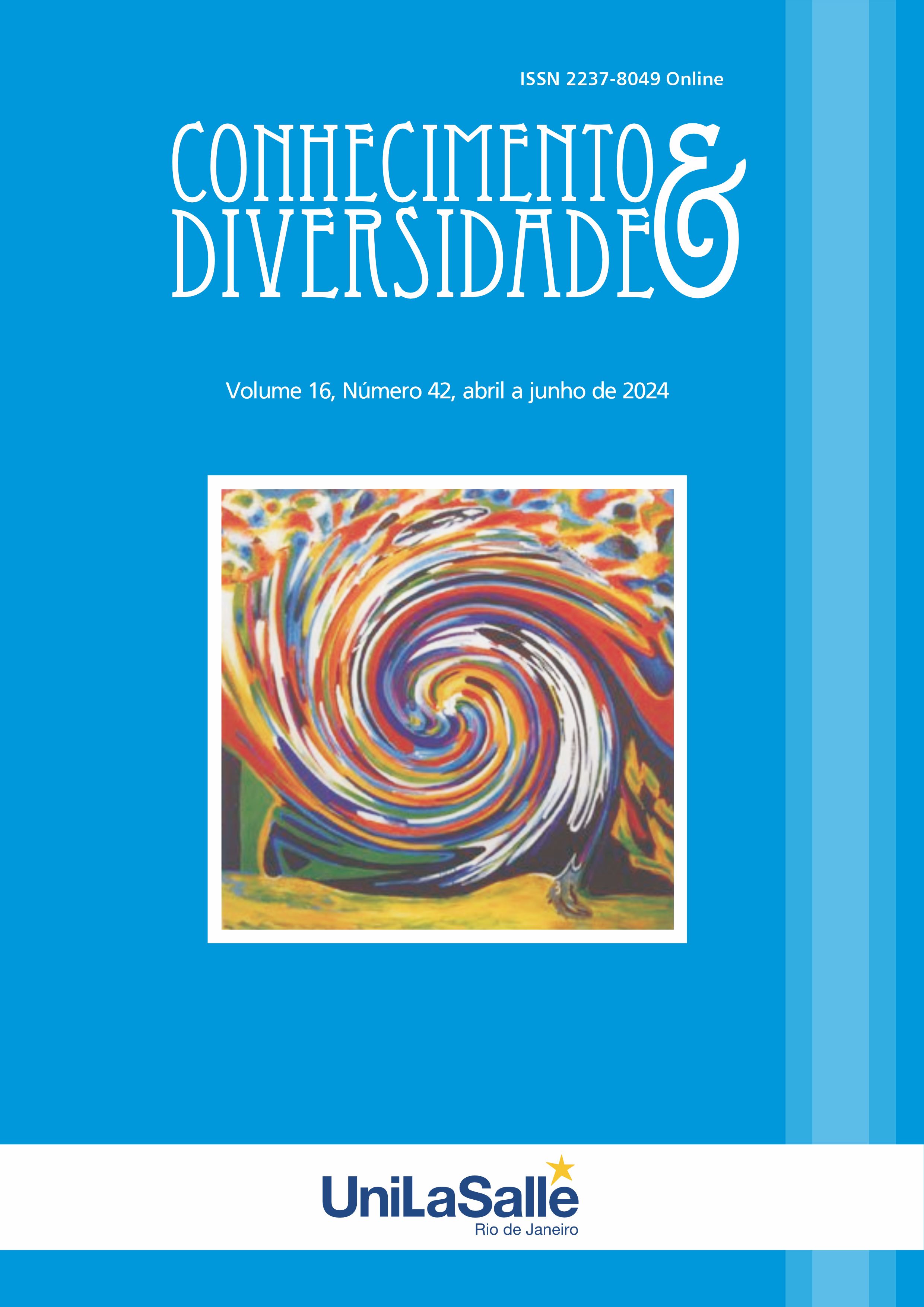GARANTIR O DIREITO DAS CRIANÇAS À EDUCAÇÃO
EQUILÍBRIO ENTRE RESPONSABILIDADE LEGAL E A ARBITRARIEDADE DA AUTORIDADE PARENTAL
DOI:
https://doi.org/10.18316/rcd.v16i42.11666Palavras-chave:
Right to education for children, legal responsibility, Adult education, Arbitrary authority, arentsResumo
Na Arábia Saudita, o direito à educação das crianças é considerado da maior importância através do sistema de ensino oficial, que proporciona um quadro jurídico para as proteger. Este sistema obriga à oferta de ensino básico a todas as crianças sem qualquer discriminação e é essencial que os pais participem ativamente neste domínio, cooperando com as autoridades educativas e proporcionando um ambiente favorável à aprendizagem das crianças. Apesar destas garantias legais, continuam a existir desafios relacionados com a aplicação efectiva destas políticas, podendo haver casos de arbitrariedade ou negligência na prestação de educação por parte dos pais. Por conseguinte, é necessário estabelecer mecanismos eficazes de controlo da aplicação e de responsabilização dos responsáveis. Além disso, a tónica é colocada na sensibilização para os direitos das crianças e para a importância de obter uma boa educação na sociedade. Consequentemente, a garantia deste direito exige esforços integrados entre o governo e a sociedade civil para melhorar a qualidade do ensino e a sua oferta.
Referências
Arroio, A. (2019, June 18). EDUCATION AS A HUMAN RIGHT AGAINST HATE SPEECH AND INTOLERANCE. Problems of Education in the 21st Century, 77(3), 314–316. https://doi.org/10.33225/pec/19.77.314
Wang, Y., & Navarro Nicoletti, F. (2023, September 25). Entertainment Education and Citizens’ Participation in COVID-19 Pandemic Response: A Case Study of Chinese Citizens on Social Media. Social Sciences, 12(10), 535. https://doi.org/10.3390/socsci12100535
Abdullah Alharbi, B. (2017, October 31). Citizenship Education in the Kingdom of Saudi Arabia: History and Current Instructional Approaches. International Journal of Education and Literacy Studies, 5(4), 78. https://doi.org/10.7575/aiac.ijels.v.5n.4p.78
Sripati, V., & Thiruvengadam, A. K. (2004, January 1). India: Constitutional amendment making the right to education a Fundamental Right. International Journal of Constitutional Law, 2(1), 148–158. https://doi.org/10.1093/icon/2.1.148
Silva, M. M. (2017, August 26). The right to education as a fundamental right in democracy. New Trends and Issues Proceedings on Humanities and Social Sciences, 4(1), 220–225. https://doi.org/10.18844/prosoc.v4i1.2258
Ubaydullayev, S. (2021, July 16). "ATTENTION TO CHILD RIGHTS IN UZBEKISTAN AND THEIR LEGAL PROTECTION UNDER NATIONAL LEGISLATION ". Tsul Legal Report, 2(1), 33–42. https://doi.org/10.51788/tsul.lr.2.1./nrvq9711
Prokop, M. (2003, January). Saudi Arabia: The politics of education. International Affairs, 79(1), 77–89. https://doi.org/10.1111/1468-2346.00296
McMellon, C., & Tisdall, E. K. M. (2020, March 10). Children and Young People’s Participation Rights: Looking Backwards and Moving Forwards. The International Journal of Children’s Rights, 28(1), 157–182. https://doi.org/10.1163/15718182-02801002
Alghamdi, A. A. (2022, January 12). Exploring Early Childhood Teachers’ Beliefs About STEAM Education in Saudi Arabia. Early Childhood Education Journal, 51(2), 247–256. https://doi.org/10.1007/s10643-021-01303-0
Kotzmann, J. (2018, April 5). The Human Rights-Based Approach to Higher Education. Oxford University Press. http://books.google.ie/books?id=SqZTDwAAQBAJ&pg=PR55&dq=A+Human+Rights+Based+Approach+to+Education+For+All&hl=&cd=1&source=gbs_api
Hurtley, S. M. (2014, October 14). Reconstituting the Right Stuff for Division. Science Signaling, 7(347). https://doi.org/10.1126/scisignal.aaa0462
Hrabynskyi, M. I., & Hrushko, M. V. (2023). International legal responsibility of the successor state for violating the obligations of the predecessor state. Legal Position, 1, 101–105. https://doi.org/10.32782/2521-6473.2023-1.19
Alharthi, M. (2022, January 22). Parental Involvement in Children’s Online Education During COVID-19; A Phenomenological Study in Saudi Arabia. Early Childhood Education Journal, 51(2), 345–359. https://doi.org/10.1007/s10643-021-01286-y
Harel Ben-Shahar, T. (2015, April 12). Equality in Education – Why We Must Go All the Way. Ethical Theory and Moral Practice, 19(1), 83–100. https://doi.org/10.1007/s10677-015-9587-3
Rina El Maza, R. E. M., Yuyun Yunarti, Y. Y., Nazeri, N., & Rahmat Hidayat, R. H. (2022, April 18). Sharia Economic Law Regulation on The Development of Sharia Financial Institutions in Indonesia. Journal of Social Work and Science Education, 3(2), 154–167. https://doi.org/10.52690/jswse.v3i2.290
Suryana, Y., Kurniaty, Y., & Martha, A. E. (2023, May 1). A Model for Protecting the Right to Education for Child Labour. Jurnal Hukum Ius Quia Iustum, 30(2), 371–395. https://doi.org/10.20885/iustum.vol30.iss2.art7
McDonagh, M. (2013, February 20). The Right to Information in International Human Rights Law. Human Rights Law Review, 13(1), 25–55. https://doi.org/10.1093/hrlr/ngs045
Kalantry, S., Getgen, J. E., & Koh, S. A. (2010, May). Enhancing Enforcement of Economic, Social, and Cultural Rights Using Indicators: A Focus on the Right to Education in the ICESCR. Human Rights Quarterly, 32(2), 253–310. https://doi.org/10.1353/hrq.0.0144
McCowan, T. (2010, November). Reframing the universal right to education. Comparative Education, 46(4), 509–525. https://doi.org/10.1080/03050068.2010.519482
Arts, K. (2014, December). Twenty-Five Years of the United Nations Convention on the Rights of the Child: Achievements and Challenges. Netherlands International Law Review, 61(03), 267–303. https://doi.org/10.1017/s0165070x14001272
ALMedlij, M. A., & Rubinstein-Ávila, E. B. (2019, January 3). The Development of LD Education in Saudi Arabia: Services and Implications for the future. International Journal of Modern Education Studies, 2(2), 83. https://doi.org/10.51383/ijonmes.2018.29
Wang, Y. (2020, September 28). Research on the Conditions of “Right Protection Fee” in State Compensation. Lifelong Education, 9(6), 75. https://doi.org/10.18282/le.v9i6.1303
MacKenzie, A., Bower, C., & Owaineh, M. (2020). Gratitude versus children’s rights: An exploration mothers’ attitudes towards disability and inclusive education in Palestine. International Journal of Educational Research Open, 1, 100001. https://doi.org/10.1016/j.ijedro.2020.100001
Tarrow, N. (2001, May). Book ReviewsThe Universal Right to Education: Justification, Definition, and Guidelines.by Joel Spring Mahwah, N.J.: Lawrence Erlbaum Associates, 2000. 191 pp. $19.95 (paper). ISBN 08058‐3548‐2. Comparative Education Review, 45(2), 296–298. https://doi.org/10.1086/447671
Jongin Baek. (2007, August). A Study on the U.S. Legal Systems for Protecting the Right to Education of Persons with Disabilities. Public Law Journal, 8(3), 539–560. https://doi.org/10.31779/plj.8.3.200708.024
Rajab, A., & Wright, N. (2018, February 27). The idea of autonomy and its interplay with culture in child-centered education: evidence from practitioners in preschools in Saudi Arabia. Early Years, 40(2), 174–187. https://doi.org/10.1080/09575146.2018.1434134
Downloads
Publicado
Edição
Seção
Licença
Copyright (c) 2024 Doaa Mohamed Ibrahim Badran, Mahmoud Abd Elhady

Este trabalho está licenciado sob uma licença Creative Commons Attribution 4.0 International License.
Conforme recomendado pelo o Public Knowledge Project, a RCD adota para seus artigos uma licença CREATIVE COMMONS: Atribuição CC BY 4.0.
Esta licença permite que outros distribuam, remixem, adaptem e construam sobre o seu trabalho, mesmo comercialmente, desde que lhe dêem crédito pela criação original.
Esta é a licença mais adequada oferecida.
Recomendado para a máxima divulgação e uso de materiais licenciados.



